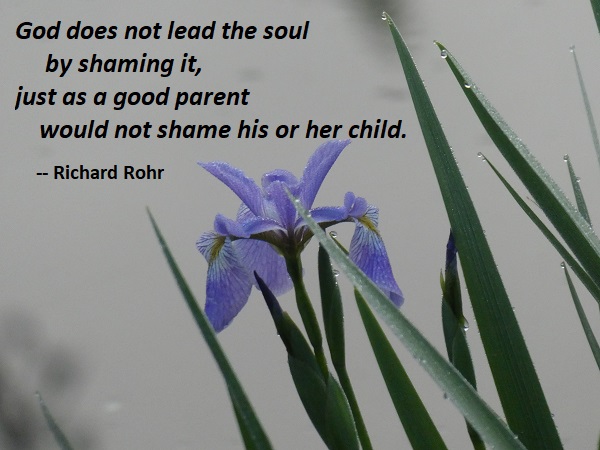A Good Parent
God does not lead the soul by shaming it, just as a good parent would not shame his or her child. It doesn’t work anyway. We all have done it at times and, if we were raised in a punitive way ourselves, we still tend to think that is the way to motivate people — by shaming them or making them feel guilty. I’ve done it enough and I’ve received it enough to know that it eventually backfires. It never works. We close down and stop trusting after that, and we use all kinds of defense mechanisms to avoid further vulnerability. God’s way actually works — to love us at even-deeper levels than we can know or love ourselves. It is really quite wonderful, and one wonders why anyone would want to miss out on this.
— Richard Rohr, Yes, And…, p. 101
Photo: South Riding, Virginia, May 10, 2023









